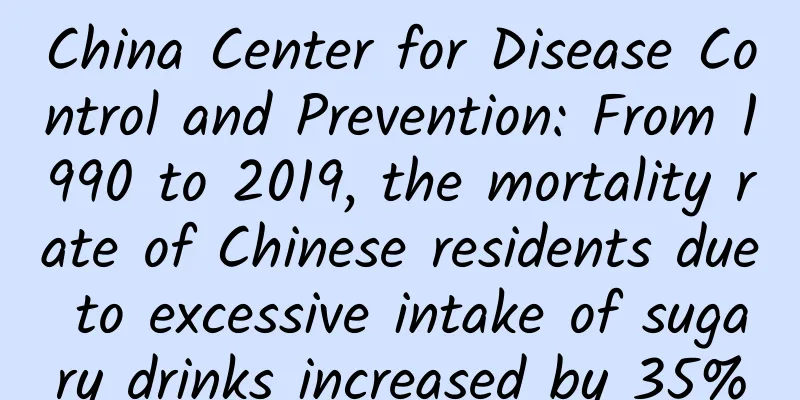6 kinds of "aging agents" hidden in food, please keep this "forbidden food list"!

|
Everyone wants to stay forever young and beautiful, but time will eventually leave its mark on the body. Although we cannot prevent aging, we can slow down the aging process by intervening in lifestyle and eating habits. Aging is not only reflected in the face, but also in all organs of the body. If you want to slow down aging, you should pay attention to the 6 hidden "aging agents" in the diet mentioned in this article! 01 Heart "aging agent": trans fatty acids Trans fatty acids are unsaturated fatty acids produced during the hydrogenation of vegetable oils. Although they are unsaturated fatty acids, they are harmful to the body and are even more harmful than saturated fatty acids. The properties and structure of trans fatty acids are similar to those of saturated fatty acids. When taken in equal amounts, the harm of trans fatty acids is 2.5 to 10 times higher than that of saturated fatty acids. Excessive intake of foods containing trans fatty acids will increase the level of "bad cholesterol" in the body and reduce the level of "good cholesterol", thereby increasing the risk of atherosclerosis, cardiovascular disease, coronary heart disease, myocardial infarction, and sudden cardiac death. [1] Therefore, the "Dietary Guidelines for Chinese Residents" recommends that the daily intake of trans fatty acids should not exceed 2 grams. Foods containing trans fatty acids are commonly found in: biscuits, cakes, fried cakes, fried dough sticks, puffed foods, coffee creamers, instant noodles, frozen foods, milk tea and other foods. To avoid foods containing trans fatty acids, it is recommended to carefully read the ingredient list and nutrition information on the package before purchasing. Foods containing ingredients such as non-dairy creamer, creamer, shortening, margarine, margarine, hydrogenated vegetable oil, refined palm oil, vegetable butter, cocoa butter substitute, and artificial shortening may contain trans fatty acids. The specific amount of trans fatty acids in food can be seen in the nutritional composition table. For example, if you eat 100 grams of the cream-flavored biscuits in the picture below, the trans fatty acid intake exceeds the standard. Image source: e-commerce platform However, the trans fatty acid content in the nutrition information table of most products is marked as "0". This is because when the trans fatty acid content in food is ≤0.3%, the words "0 trans fatty acids", "zero trans fatty acids", or "trans fatty acid-free" can be marked on the packaging. [2] However, this only means that the content is low or absent, not that there is absolutely no trans fatty acid. If you want to minimize the intake of trans fatty acids, it is better to eat less. In addition, vegetable oils also contain trans fatty acids, especially those that have been repeatedly heated to high temperatures. Therefore, in daily cooking, you should pay attention to controlling the amount of cooking oil to 25-30 grams, avoid high-temperature frying, and don't wait until the oil is smoking before starting to cook. 02 Liver "aging agent": alcohol Excessive drinking is harmful to health, especially to the liver. More than 90% of the ethanol ingested by the human body through drinking needs to be metabolized in the liver. The liver is the largest detoxification organ in the human body. The "work" pressure is relatively high, and it needs to metabolize ethanol, which is equivalent to working overtime. Long-term and heavy drinking, ethanol and its metabolite acetaldehyde acetic acid can cause great damage to the liver, and can reduce the liver's ability to detoxify certain toxins, leading to liver lesions. [3] Many studies at home and abroad have shown that for people who drink frequently, the liver is the most affected organ and bears a heavy load, which can easily lead to alcoholic liver damage. It is estimated that about 20 million people in the world have excessive drinking problems, of which 10% to 20% have varying degrees of alcoholic liver disease. [3] Therefore, if you want to keep your liver healthy, it is best not to drink alcohol. If you really have to drink, control the amount. The new version of the "Dietary Guidelines for Chinese Residents" recommends that both men and women should control their daily alcohol intake within 15 grams, which is approximately equivalent to 450 ml of beer, 150 ml of wine, 50 ml of liquor, and 30 ml of high-proof liquor. You must also not drink on an empty stomach. Eating staple food before drinking can slow down the absorption of alcohol; do not drink it with carbonated drinks to avoid the carbon dioxide in carbonated drinks accelerating the absorption of alcohol into the blood and getting drunk faster; do not drink it with coffee, because caffeine can make people feel excited and easy to drink more. In addition, be sure to drink plenty of water after drinking to help the body metabolize alcohol. 03 Added sugars are a 'skin and teeth aging agent' Many people like to eat sweets because they can stimulate the secretion of dopamine and make people feel happy! However, eating too much sweets will not only harm the health of teeth, but also accelerate the aging process of the human body. Sugar will provide a "comfortable" growth and reproduction environment for bacteria in the mouth. Bacteria and sugar will work together to gradually "break down" the teeth, and finally form caries. Don't underestimate tooth decay. If it is not treated in time, it will further form cavities. At that time, when you encounter sour, sweet, cold, or hot food, you can only look at or smell it. If you put it in your mouth, it will be a "stimulation" and the pain will be very obvious. In more serious cases, it will lead to tooth loss and difficulty chewing, which will affect eating. [4] Moreover, eating too much added sugar can accelerate the aging process of the skin. Sugar is eventually broken down into glucose in the body before it can be used by the body. The carboxyl group of glucose can react with the amino groups of DNA, fat, and protein through a series of reactions to form advanced glycation end products (AGEs), which can glycate collagen and elastin, accelerating the aging of the skin. [5] According to the recommendations of the Chinese Dietary Guidelines, the daily intake of added sugar per person should not exceed 25 grams. Added sugars are not limited to white sugar, sucrose, brown sugar, white sugar, and rock sugar. Honey, fructose, high fructose corn syrup, corn syrup, etc. added in many food ingredient lists are also added sugars. If you want to protect and slow down the aging of your skin and teeth, try to eat less food containing these added sugars! 04 Eye "aging agent": sweets In addition to damaging teeth and skin, eating too much sweets can also threaten eye health. Studies have shown that a high-sugar diet can increase myopia. This is because long-term high-sugar intake can directly affect blood sugar, insulin, and glucagon levels in the body, thereby affecting the polyol pathway, glucagon signaling pathway, and insulin signaling pathway. It can also cause blood sugar levels in the body to rise, which may be involved in refractive myopia by activating the lens polyol pathway. [6] In short, a high-sugar diet can induce a series of changes in the body and promote the occurrence and development of myopia. In addition, a survey on the relationship between myopia and the lifestyle and eating habits of adolescents showed that the rate of abnormal vision among adolescents who often ate sweets was 78.49%, while the rate of abnormal vision among adolescents who did not eat sweets was 57.95%. This may be because eating too much sweets reduces the level of vitamin D in the serum; it may also be because sweets consume a large amount of vitamin B1 during digestion and absorption, producing a large amount of acidic substances that lead to a decrease in blood calcium, and can easily cause changes in the osmotic pressure of the aqueous humor in the eye, causing the lens to bulge and resulting in blurred vision. [7] If you want your eyes to age slowly, you must also pay attention to controlling your sugar intake! 05 Stomach "aging agent": high-salt food The harm of a high-salt diet is not limited to the well-known high blood pressure. The occurrence of gastritis is also closely related to a high-salt diet. Excessive salt intake can irritate the gastric mucosa and may cause the gastric parietal cells to fall off[8]. Parietal cells are a barrier that protects the health of the stomach. Once they are damaged, the risk of gastritis increases and may even lead to gastric cancer. According to the recommendations in the 2022 edition of the "Dietary Guidelines for Chinese Residents", the daily salt intake per person should be less than 5 grams. If you want to slow down the "aging" process of the stomach, you must find a way to control salt. Salt control spoons can help you reduce your salt intake. There are 0.5g, 1g, 2g, and 5g. You can buy them according to your needs. There are also electronic salt control spoons, which are also very convenient. When cooking, it is recommended to add salt when the dishes are about to be served. You can use vinegar to season the dishes, because a small amount of vinegar can enhance the salty taste. You can also add more natural seasonings, such as star anise, bay leaves, thirteen spices, pepper, pepper, onion, ginger, garlic, etc., to reduce the amount of salt used. Eat less pickled vegetables, kimchi, soybean paste, fermented bean curd, bacon, ham and other foods containing invisible salt in life. When cooking, use less salt if you put soy sauce. 10ml soy sauce contains about 1.6g of salt. In addition, when buying packaged food, you should read the nutrition information table and try not to buy high-salt foods, that is, foods with a sodium content of ≥800mg/100g. 06 Esophagus "aging agent": hot food Our esophagus is very fragile. The most comfortable temperature is 10~40℃. 50℃~60℃ can barely be tolerated, but above 65℃ it is unbearable and will cause burns. But the delicate esophagus is not sensitive to temperature, and even if it is burned, it does not feel much. Therefore, eating hot food frequently is a chronic irritation to the esophageal mucosa. Often the damage is not repaired, and it is "severely damaged" again. In the long run, it will increase the risk of cancer and make it easy to develop esophageal cancer. Therefore, hot drinks above 65°C have been listed in the Class 2A carcinogen list by the International Agency for Research on Cancer (IARC) under the World Health Organization (WHO), which means that they may cause cancer to humans. If you want to have a healthy intestine, don't eat hot food or drink too hot water. Summary: Although we cannot prevent aging, we can change our lifestyle and diet to keep ourselves and our families away from the harm of “aging agents” and age more slowly, and more slowly… References: [1] Xie Shangcai, Jiang Liqin. Research progress on the harm and mechanism of trans fatty acids on cardiovascular system[J]. Prevention and Treatment of Cardiovascular and Cerebrovascular Diseases, 2016, 16(02): 134-135+139. [2] GB 28050-2011 National Food Safety Standard General Rules for Nutrition Labelling of Prepackaged Foods [3] Ma Xinying. Effects of alcohol intake on liver function and serum oxidative stress factors MDA and MT levels[D]. North China Coal Medical College, 2010. [4] Oral health guide for Chinese residents[J]. Chinese Journal of Stomatology, 2010(06):325-330. [5] Zhou Mengting, Xu Jun, Ye Liangwei, et al. Research progress on the formation, hazards, inhibition methods and effective raw materials of advanced glycation end products (AGEs)[J]. Modern Food, 2019(24). [6] Yu Ting, Song Jike, Bi Hongsheng, Xie Xiaofeng. Study on the relationship between high-sugar diet and myopia-related signaling pathways[J]. Advances in Ophthalmology, 2020, 40(08): 789-792. DOI: 10.13389/j.cnki.rao.2020.0180. [7] Li Hong, Ding Junjie, Gu Xin, Yang Xiaohe, Yao Liangliang, Gao Xuedong, Zhang Maoming, Liu Wei, Qiu Hongbin. Investigation on myopia and living and eating habits among adolescents[J]. Heilongjiang Medical Science, 2020, 43(06): 175-176+178. [8]Xu Hairong, Xu Yaochu. Recent epidemiological studies on the relationship between dietary factors and gastric cancer. Chinese Oncology, 2002(02):21-23. Author | Xue Qingxin, member of Chinese Nutrition Society, registered dietitian, health manager, public nutritionist Review | Gao Chao, Associate Researcher, Institute of Nutrition and Health, Chinese Center for Disease Control and Prevention |
<<: It invades fishing grounds on a large scale and preys on shellfish. What is this "killer"?
>>: How was the beautiful coral reef coast formed?
Recommend
After reading this, iOS fonts won’t be that difficult!
[[145301]] The motivation for writing this articl...
Does the Urumqi Mini Program Mall need to apply for a business license?
Can an e-commerce business license be used to ope...
QQ 8.5 for iPhone officially released: Split-screen file viewing and new moods
Although it is the weekend, Tencent QQ team relea...
Can the transformation into a "living room computer" be a lifeline for OTT boxes?
After the State Administration of Radio, Film and...
Apple Watch can also detect the new coronavirus: It can be detected 7 days before symptoms appear
At present, most of the nucleic acid tests for th...
A comprehensive summary of promotion channels in 2019!
With the rapid rise of the Internet, there are to...
Google's Pilex phone blocks users from calling 911
At the end of November, Reddit user KitchenPictur...
Why are fruits becoming sweeter and sweeter? Is this unhealthy?
Have you noticed that fruits are getting sweeter ...
The effects of Guangdiantong and WeChat Moments are not good? Key points for account operation!
There are countless channels for information flow...
The world of mini programs behind the data: mini games dominate, while retail programs perform steadily
[[244432]] Mini Programs are about to turn two ye...
A strange star bridge! Is this a galaxy on one side and a black hole escaping on the other?
Bumper ball game between black holes Scientists d...
China Passenger Car Association: Analysis of the national passenger car market in November 2020
1. Review of the national passenger car market in...
Omicron variant "zero severe cases" "flu-like"? Experts respond
Domestic and foreign epidemic data show that the ...
In the live streaming melee, will the five major camps of YY, Yingke, Momo, KK and Douyu be formed soon?
With the rise of internet celebrities such as Pap...









